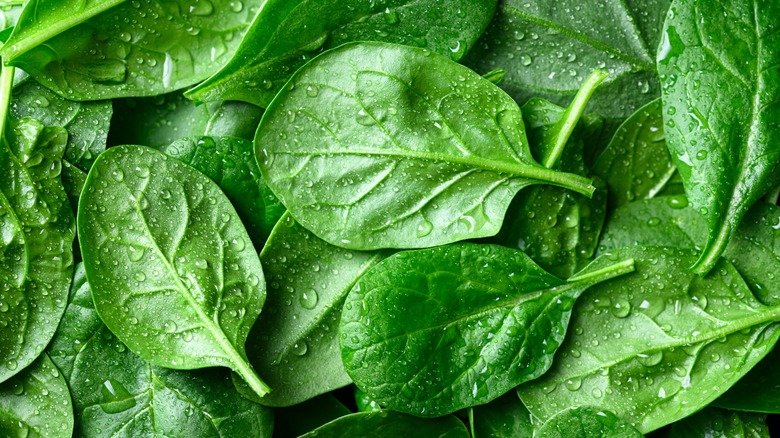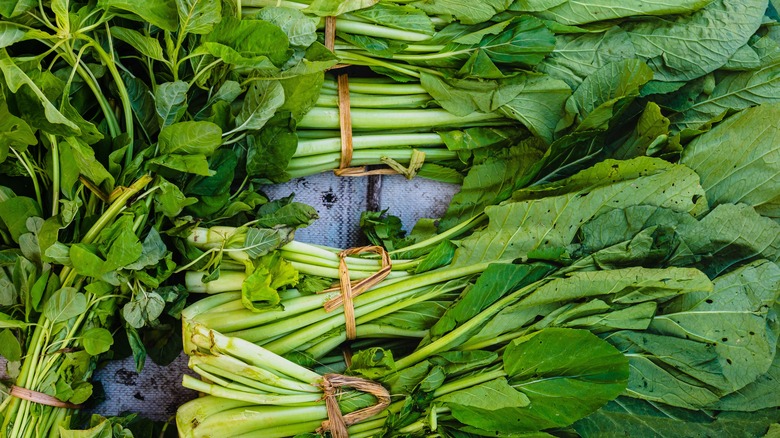What To Look For When Buying Good-Quality Spinach
Spinach is one of those vegetables that, while readily available and good for your health, many people tend to avoid. If you're not a fan of this leafy green, there are several great ways to improve its taste and texture, like adding crunchiness to sautéed spinach or squeezing in some lemon juice to boost the flavor. However, the root of the problem might actually just be the produce itself.
Choosing high-quality spinach is essential if you want to ensure a better taste and texture overall. When selecting spinach at the store, look for crisp, dark green leaves. Spinach that appears wilted or noticeably yellow in color should be avoided.
Physical appearance is one of the biggest indicators of quality and freshness when it comes to spinach. Other factors, however, such as size, can indicate how the spinach will taste. Understanding what certain characteristics mean when selecting spinach will not only help ensure that you get better produce, but it can also help you pick out the right spinach for your specific culinary needs.
Spinach signs to look out for
First and foremost, appearance will tell you a lot about spinach. Color is a major indicator of quality, as good spinach should be dark green. Yellow or brown leaves could be a sign that the spinach is going bad (or already has). Spinach with any physical signs of decay, including blemishes or damage, should be avoided. High-quality spinach will appear firm with as little wilting as possible (ideally, there will be no wilting at all). If you're buying prepackaged spinach, be sure to avoid bags with excessive moisture. In fact, paper towels are key when storing spinach long-term, as they help draw out the leaves' moisture and may slow the rotting process.
Last but not least, it's important to choose spinach that will best match your cooking needs. When serving spinach raw, like in salads, be on the lookout for younger spinach, which will have smaller leaves and more tender stems. For spinach that will be cooked, look for mature spinach, which will have larger leaves and thicker stems.

